BC's largest drug addiction rehabilitation centre approved for East Vancouver

A major drug addiction rehabilitation centre, the largest of its kind in British Columbia, was unanimously approved by Vancouver city council late last night following a marathon two-day public hearing that involved over 50 public speakers.
See also
- BC's largest drug addiction rehabilitation centre proposed for East Vancouver
- Riverview Hospital to reopen with new $101-million mental health and addiction treatment facility
- New $1.9-billion St. Paul’s Hospital is officially a go in Vancouver
- Construction begins on $84-million hospital expansion in White Rock
The rezoning application by Vancouver Coastal Health (VCH), BC Housing, and the City of Vancouver calls for a state-of-the-art drug withdrawal management centre and social housing on a city block-sized lot at 1636 Clark Drive and 132-1395 East 1st Avenue — the northeast corner of the intersection of Clark Drive and East 1st Avenue, the eastern end of the False Creek Flats.

Location of the new drug addiction rehabilitation centre at the amalgamated site of 1636 Clark Drive and 1321-1395 East 1st Avenue, Vancouver. (HDR Architecture / CEI Architecture / BC Housing)

Location of the new drug addiction rehabilitation centre at the amalgamated site of 1636 Clark Drive and 1321-1395 East 1st Avenue, Vancouver. (HDR Architecture / CEI Architecture / BC Housing)
“We are pleased to be working alongside BC Housing and Vancouver Coastal Health on this important project which would provide vital housing, health services and job space for Vancouver’s residents in a development that is responsibly and safely managed,” said Mayor Kennedy Stewart, in a statement.
“I want to thank my fellow Councillors, city staff and our partners for their hard work on a project that will contribute positively to the local community.”

2018 artistic rendering of the new drug addiction rehabilitation centre at the amalgamated site of 1636 Clark Drive and 1321-1395 East 1st Avenue, Vancouver. (HDR Architecture / CEI Architecture / BC Housing)
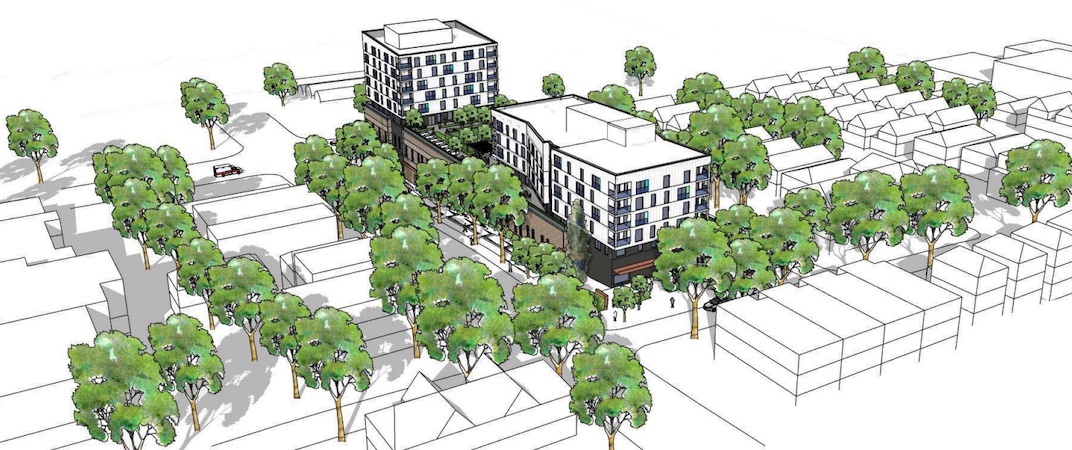
2018 artistic rendering of the new drug addiction rehabilitation centre at the amalgamated site of 1636 Clark Drive and 1321-1395 East 1st Avenue, Vancouver. (HDR Architecture / CEI Architecture / BC Housing)
There will be about 141,000-sq-ft of floor area, including a 49,000-sq-ft overdose clinic in the first two levels, containing specialized health care services such as outpatient and inpatient withdrawal management and sobering and at-home withdrawal – all within an integrated setting. These clinic levels also include 20 short-term housing units for individuals that have finished detox and are moving towards long-term solutions.
Within the upper floors of the project, a total of 90 social housing units are planned.
The building’s form is a podium with two mid-rise structures at the ends, with the easternmost mid-rise spanning more than half the block and the westernmost mid-rise reaching 120 ft or 10 storeys in height. But both structures are separated from the third level upwards by a large rooftop patio with a food garden, outdoor kitchen, and small kids play area.
Underground levels will accommodate 89 vehicle parking spaces.
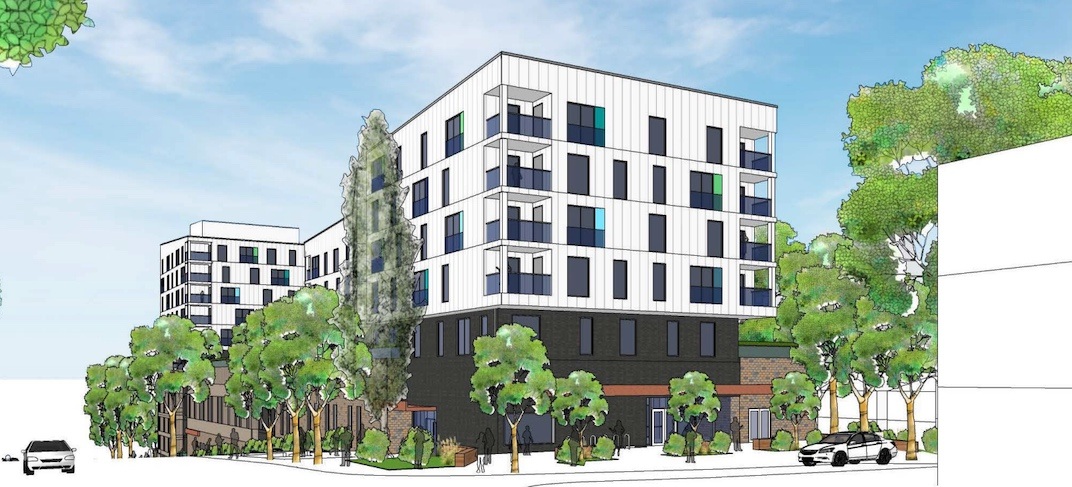
2018 artistic rendering of the new drug addiction rehabilitation centre at the amalgamated site of 1636 Clark Drive and 1321-1395 East 1st Avenue, Vancouver. (HDR Architecture / CEI Architecture / BC Housing)
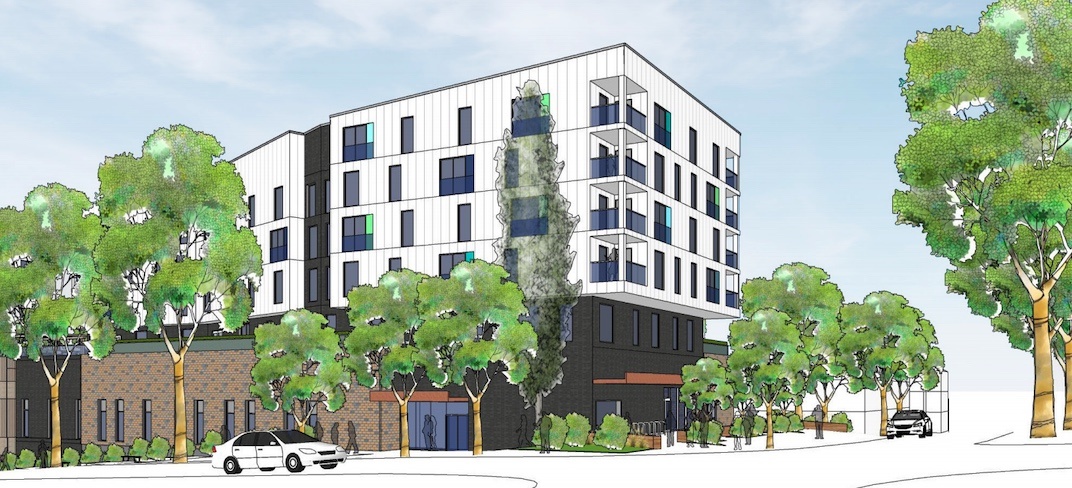
2018 artistic rendering of the new drug addiction rehabilitation centre at the amalgamated site of 1636 Clark Drive and 1321-1395 East 1st Avenue, Vancouver. (HDR Architecture / CEI Architecture / BC Housing)
When the new WMC facility opens, Vancouver’s current VCH-operated detox centre at 377 East 2nd Avenue – which is ageing, smaller, and no longer meeting current demand – will completely close. The operations of the WMC will allow academic teaching, research, and learning to support staff development and knowledge sharing.
Additionally, as another institutional function, a 3,000-sq-ft space owned by the municipal government will be set aside for a non-profit operator to support indigenous healing and wellness and community economic development.

2018 artistic rendering of the new drug addiction rehabilitation centre at the amalgamated site of 1636 Clark Drive and 1321-1395 East 1st Avenue, Vancouver. (HDR Architecture / CEI Architecture / BC Housing)

2018 artistic rendering of the new drug addiction rehabilitation centre at the amalgamated site of 1636 Clark Drive and 1321-1395 East 1st Avenue, Vancouver. (HDR Architecture / CEI Architecture / BC Housing)
The City of Vancouver is providing the land for the project, which has an estimated value of $16.7 million for the property’s 99-year term lease. Environmental remediation costs will also be covered by the municipality, but the exact cost has not been determined at this time.
Construction and soft costs covered by other project partners are estimated at a total of $64.5 million.
The rezoning was considered under the Grandview-Woodland Community Plan, which identifies non-market housing and health services as core community needs.

2018 artistic rendering of the new drug addiction rehabilitation centre at the amalgamated site of 1636 Clark Drive and 1321-1395 East 1st Avenue, Vancouver. (HDR Architecture / CEI Architecture / BC Housing)
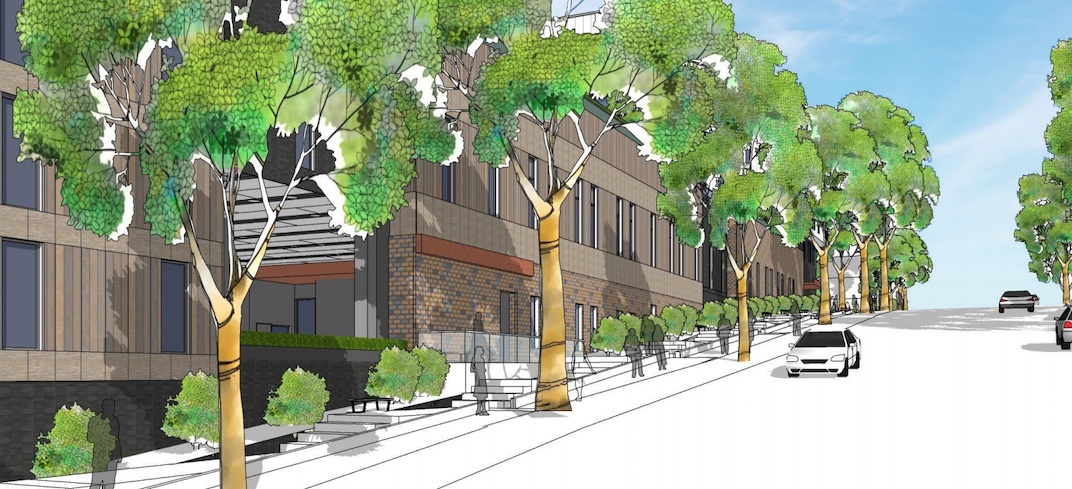
2018 artistic rendering of the new drug addiction rehabilitation centre at the amalgamated site of 1636 Clark Drive and 1321-1395 East 1st Avenue, Vancouver. (HDR Architecture / CEI Architecture / BC Housing)
If the project passes its upcoming development approval process, construction on the project could potentially start in 2020.
“The new withdrawal management centre at Clark and 1st will give us a purpose-built facility that will deliver a range of specialized services at one place so people seeking help during a vulnerable time in their recovery are able to access the right supports for them at the right time,” said Bonnie Wilson with Vancouver Coastal Health.
“We want to thank city council for their trust and we’re committed to being good neighbours at our new home.”
Over on the western end of the False Creek Flats near Main Street-Science World Station, the provincial government recently officially green-lit the new $1.9-billion St. Paul’s Hospital campus, which will also include a drug rehabilitation component.
Later this year, the provincial government will also be opening a new $101-million replacement mental health and addiction treatment centre at the site of Riverview Hospital in Coquitlam.
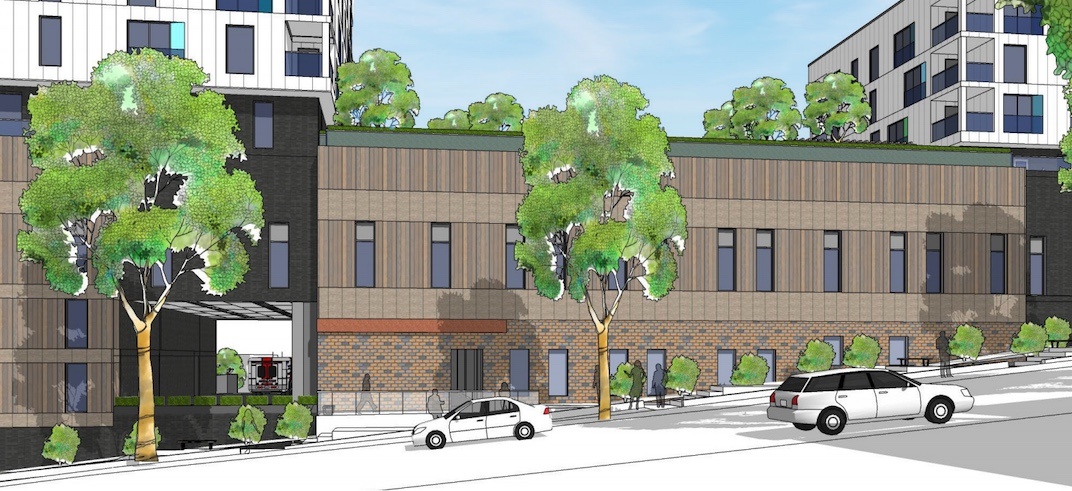
2018 artistic rendering of the new drug addiction rehabilitation centre at the amalgamated site of 1636 Clark Drive and 1321-1395 East 1st Avenue, Vancouver. (HDR Architecture / CEI Architecture / BC Housing)

2018 artistic rendering of the new drug addiction rehabilitation centre at the amalgamated site of 1636 Clark Drive and 1321-1395 East 1st Avenue, Vancouver. (HDR Architecture / CEI Architecture / BC Housing)
See also
- BC's largest drug addiction rehabilitation centre proposed for East Vancouver
- Riverview Hospital to reopen with new $101-million mental health and addiction treatment facility
- New $1.9-billion St. Paul’s Hospital is officially a go in Vancouver
- Construction begins on $84-million hospital expansion in White Rock

